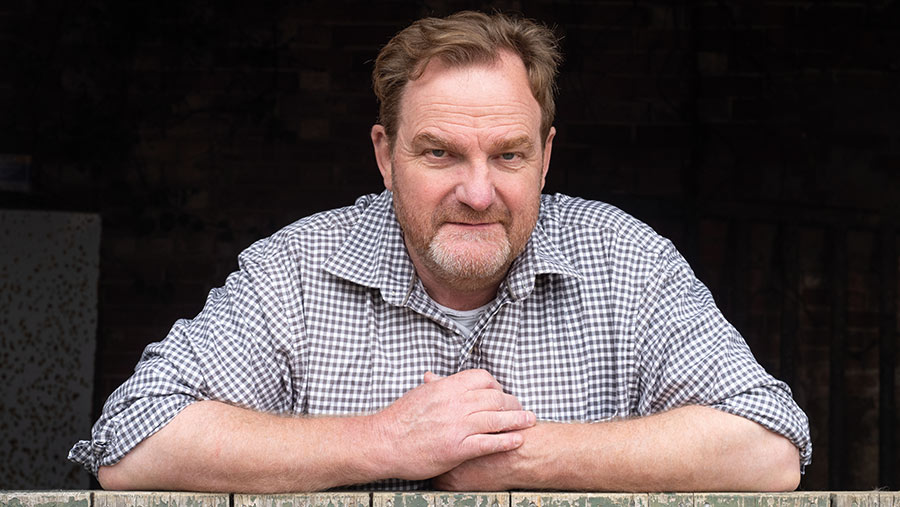Flindt on Friday: We’ve been net zero, on and off, for years
 © Kathy Horniblow
© Kathy Horniblow If you’re reading this, it’ll be a miracle. It’ll certainly be no thanks to the combined technical might of Fleur Telecom, BT and Openreach. Yup, we’re in the middle of a broadband crisis.
It has never been good out here at Flindt Towers, but for many years it mattered not. Then the children got older, and their demands – ie games – got more sophisticated.
Luckily, they all scarpered off to university, but you should have heard the fuss whenever they came home for holidays. Our single-digit thingywatsits per second were totally unsuitable for whatever students need to do on their computers.
See also: Farmers Weekly Podcast Episode 61: Car v telehandler, broadband & foodbanks
But we still saw little point in upgrading. Farming as we do it needs no high-speed computer connection.
Having said that, it did become apparent that online Tetris and watching old films on YouTube would both be improved with better broadband.
So when a smooth-talking fibre optic company rep arrived in the yard, promising light-speed internet, it seemed foolish not to offer to help with access for trenches and junction boxes.
Poles apart
Some months later, once the land agents had finished arguing, most of Hinton Ampner was dragged into the 21st century.
We, however, weren’t. You see, the fibre had successfully reached a pole 100 yards away – which was the last “shared utilities” pole. From there to here were “electric only” poles, so no telecommunications allowed.
We were offered a microwave dish which would bounce a signal off a relay station on a distant hill back down to a base unit in a nearby village. At a hefty price, too.
We declined the offer, and persevered with copper wire broadband – poor as it was.
How poor? Well, if you signed up for one of the recent FW webinars about farming’s future, you might have seen a pixelated blur blithering away through what sounded like a cotton wool-filled megaphone. That was me.
And I recently turned down a kind invite to speak at a “virtual” dinner; my joke is lame enough without it getting mangled in laughter-free cyberspace.
We’ve been bumbling along at three megathingies per somethingorother for months – poor, but steady. Then, a couple of months ago, it became poor and unreliable, constantly “dropping” and taking ages to reconnect.
Another fine guess
There is no hell like the process of trying to get your internet sorted out. We ring Fleur (our “providers”, who took over from TalkTalk, who took over from – oh, I can’t remember), wait for hours, and go through their checklist.
They claim to do some “tests” at their end, and then say everything’s fine.
Next stop is BT, who provide the expensive business line. In a gap between outages, you send a complaint. Within moments, they report that everything’s fine.
You persevere, and get a call from remote parts, with dire and intimidatory warnings of the consequences of summoning an engineer if he finds nothing wrong.
Think of Bob Hoskins as the plumber in Brazil.
We’ve endured all the warnings and said “no, it’s not fine!” when assured otherwise. We managed to get a new router from Fleur, online software updates, and even an engineer from Openreach.
He fitted a new wall socket and then vanished into the shrubbery for an hour, but emerged with a layer or viburnum dust and a promise of better connections, now that “everything’s fine”.
It’s not, of course. We’re still internet-free for long periods. Luckily, our farming is unaffected.
I did have to ask the team at Farmers Weekly if I should resort to faxing this column. It got the biggest laugh I’ve heard in years.

